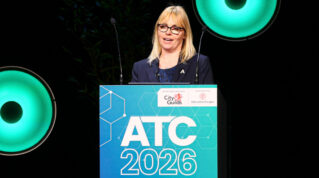Degree apprentices are less impressed with the quality of their courses than full-time university students, according to data from the Office for Students.
FE Week analysis of National Student Survey results found that degree apprentices at colleges and universities were more critical of their courses in 2022/23 – particularly when it comes to organisation and management.
It is the first time the survey included degree apprenticeships since the survey was launched in 2005. Around 9,600 of the 339,000 respondents to this year’s survey were doing a degree apprenticeship.
Biggest gap in satisfaction is for course organisation
The survey revealed a gap between the overall satisfaction of degree apprentices and full-time students, which Simon Ashworth, director of policy at the Association of Employment and Learning Providers (AELP), attributed to degree apprenticeships being “significantly more intensive” than a standard undergraduate degree, as they are primarily a job with a substantial programme of structured learning attached.
Each of the 27 questions in the survey had four options, ranging from the most positive to the most negative and covered seven themes: teaching, learning opportunities, assessment and feedback, academic support, organisation and management, learning resources, and student voice.
FE Week’s analysis found that a higher proportion of full-time students answered positively on 18 of the questions compared to apprentices.
The biggest gap was for organisation of the course, with 57 per cent of degree apprentices saying their course was well organised compared to 72.4 per cent of full-time students – a 15.4 percentage point difference.
Degree apprentices were also much more critical on how course changes were communicated, with 65.2 per cent saying they were well communicated in comparison to 74.5 per cent of full-time university students.
A smaller proportion of degree apprentices said their course was regularly intellectually stimulating – 78.2 per cent compared to 84 per cent of full-time students.
Degree apprentices were also less convinced they had the chance to explore ideas and concepts in depth. While 77.4 per cent of degree apprentices said they did, 82.6 per cent of full-time students felt they were able to do that.
And a smaller proportion of degree apprentices felt their own course feedback was acted on – which came in at 56.8 per cent in comparison to 61.8 per cent of full-time students.
Apprentices full of praise for assessment
But apprentices were more complimentary than full-time students when it came to receiving assessment feedback on time, with a 5-percentage point gap between their rating of 84.6 per cent and the 79.6 per cent registered by full-time students.
Degree apprentices were also more satisfied than their full-time counterparts with marking and assessment; 83.5 per cent of degree apprentices said marking and assessment of their course was “fair” compared to 79.8 per cent of full-time students.
FE Week’s analysis found degree apprentices studying at Leeds Trinity University were the most critical in England around teaching quality and learning opportunities, as 50.4 per cent and 55 per cent of the university’s learners reported positive experiences in those themes respectively.
The university also runs degree apprenticeships for CP Training Services, a ‘good’ rated training provider based in Upminster, which got the lowest results in organisation and management.
A spokesperson for the university said it was “working hard to provide an excellent student experience” for degree apprentices.
“The results in a small number of our apprenticeship subjects are disappointing, so we will be applying this feedback and reviewing good practice in better-performing areas as we continue to strive to enhance our offer,” the spokesperson added.
Degree apprentices at Ravensbourne University London, meanwhile, were the most critical when it came to assessment and feedback, academic support and learning resources – with 44.5 per cent, 45.5 per cent, 43.3 per cent of the university’s degree apprentices reporting a positive experience respectively.
Andy Rees, the dean of Ravensbourne University London said he was “pleased” to receive an overall improvement of more than 7 per cent in the NSS, but that “improvement is still needed on the degree apprenticeship course and we are now applying the same rigour and learnings to them as we have our under graduate degrees”.
Degree apprentices were much more complimentary at Truro and Penwith College, which scored the highest proportion of positive experiences in learning opportunities and student voice. Apprentices at University Centre Quayside in Newcastle rated it best for teaching, assessment and feedback, and academic support.
Ashworth said degree apprenticeships represent “a high standard of qualification while also being an important route into many careers”, and referenced stats from earlier this year which found level 6 solicitor apprenticeships scored on average 8 per cent higher in exams than those on the traditional academic route.
“This highlights the overall benefits of apprenticeships, especially the on-the-job aspect that doesn’t always get enough recognition,” he added.
A spokesperson for Universities UK said the data shows “the vast majority” of degree apprentices leave with “positive experiences”.
“Despite universities’ best efforts, it is inevitable that there will be some instances when students may be dissatisfied with their experience.
“If there are pockets where things could be improved, this should involve collaboration between both university and employer, as degree apprenticeships are based on a partnership between the two.”
















Your thoughts